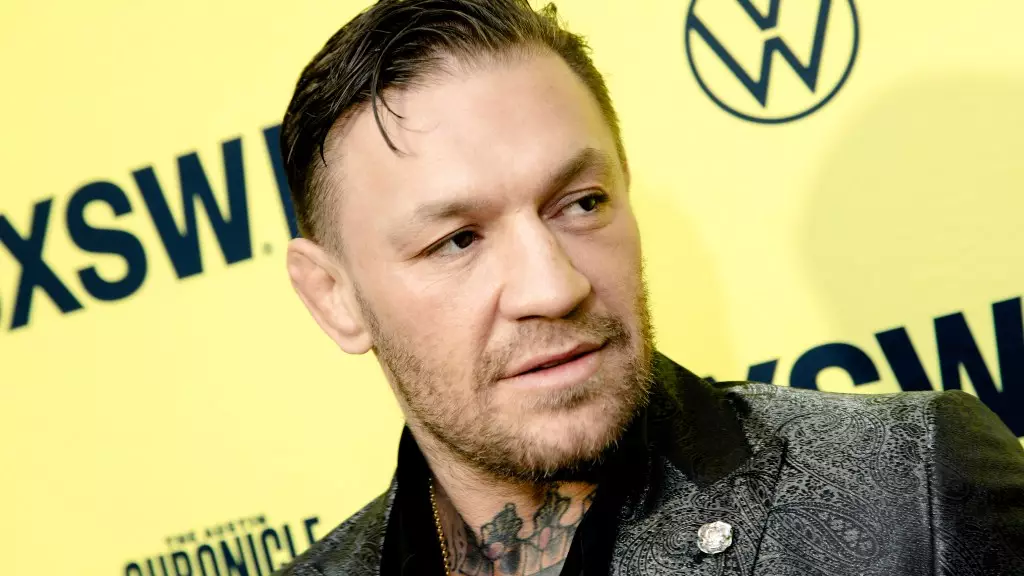The ongoing civil trial against UFC superstar Conor McGregor has captivated the attention of fans and the public alike, not only because of his celebrity status but also due to the serious allegations levied against him. The case revolves around claims made by Nikita Hand, who alleges that McGregor raped her in a Dublin hotel room in December 2018. As the proceedings unfold in court, the nature of the testimonies reveals complexities that invite scrutiny into both the alleged incident and the broader implications for celebrity culture and issues of consent.
Nikita Hand claims that her encounter with McGregor turned non-consensual after a night of partying following a work event. The court was informed that Hand and McGregor, along with a couple of acquaintances, engaged in drug use and subsequently went to a hotel room, where the alleged assault took place. According to Hand, the interactions escalated to forceful sexual activities, leading her to seek legal recourse for what she describes as a traumatic experience.
The initial portrayal of events by Hand contrasts starkly with McGregor’s defense. He has categorically denied any wrongdoing, asserting that all interactions were consensual. His position reflects a common narrative in high-profile sexual assault cases, where the nuances of consent can become obscured by the individuals’ reputations and public personas.
On the sixth day of the trial, McGregor took the stand, offering a vivid account of his version of events. His testimony painted a narrative of confusion and fear inflicted not by his actions but by the allegations themselves. While recalling his response to the rumors of an investigation, he described a sense of shock that would be familiar to anyone accused of such serious misconduct.
Contradicting Hand’s allegations, McGregor claimed that contact was initiated by her and that their relationship throughout the evening was consensual. He articulated that Hand had been flirtatious from the outset, even alleging that she performed oral sex on him willingly before they engaged in sexual activity. Such detailed assertions underscore a defense strategy that seeks to invalidate the victim’s testimony by portraying a narrative of mutual consent.
The trial has seen a variety of witnesses, including emergency room staff and colleagues who have offered insight into the aftermath of the night in question. Some of these testimonies provided corroborating evidence to Hand’s claims regarding her emotional and physical state following the alleged assault. Witnesses reported consistency in what Hand communicated to them, allowing the court to evaluate the credibility of her testimony against McGregor’s narrative.
However, the testimony of Hand’s co-worker, Danielle Kealey, complicated the narrative further. Kealey indicated that she did not witness any distress or injury on Hand after the incident occurred, presenting a stark contradiction to Hand’s claims. The dichotomy between what Kealey observed and Hand’s report of the encounter poses a crucial question regarding the reliability of witnesses in high-pressure scenarios where emotions run high.
Additionally, the trial has opened a dialogue regarding the psychological aftermath of sexual assault. Experts have testified that following the alleged assault, Hand experienced a notable decline in mental health stability and productivity. This aspect of the trial highlights not only the immediate consequences of such assaults but also their lasting effects on the victims’ lives.
McGregor’s defense has attempted to downplay these impacts, framing them as insufficiently connected to the events of that night. Nonetheless, the testimonies surrounding the emotional and psychological ramifications reflect broader societal issues regarding the treatment of survivors and the challenges they face in seeking justice.
As this civil trial continues to unfold, it serves as a microcosm of larger societal debates surrounding consent, accountability, and the complexities of sexual violence. McGregor’s public persona, alongside the nature of the allegations, reflects the tension inherent in high-profile cases where fame and power complicate perceptions of truth and trustworthiness. The outcome of this trial will undoubtedly impact the individuals involved but may also influence public attitudes regarding similar cases in the future, fostering an ongoing conversation about consent, responsibility, and the often harsh scrutiny that survivors face. As the judicial proceedings resume, the weight of these narratives—both in and out of the courtroom—remains a significant consideration.

